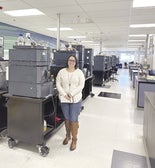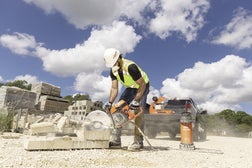Flush with cash: Public firms raking in profits, hanging onto cash

A majority of public companies based in Central Massachusetts have been stockpiling cash over the past three years, as improved economic fortunes have not triggered more spending.
Eleven of the region’s 15 largest public entities have grown their cash and cash equivalents — investments with maturities of less than 90 days —between fall 2010 and fall 2013, according to quarterly earnings statements filed with the U.S. Securities and Exchange Commission.
Four companies have more than doubled their cash reserves over that span; one — IPG Photonics of Oxford — has quadrupled its cash on hand.
“There’s a ton of money on the sidelines,” said Bill Tarzia, a Westborough-based audit services partner at Grant Thornton. “Companies are slow to reinvest in themselves.”
The simplest explanation for the amassing of cash is increased profitability, said Frank Jenkins, a visiting lecturer at Clark University’s Graduate School of Management in Worcester. Most local companies said in earnings statements that operating profits have contributed to their cash-on-hand growth over the past three years, while just two — Devens-based AMSC and SeaChange International of Acton — have reported that they used cash to cover operating losses.
But increased profits haven’t typically led to more spending on labor, buildings or equipment, Jenkins said. That’s largely due to uncertainty surrounding the pace of the economic recovery, the cost of implementing federal health care reform and changes to how depreciation is calculated after tax-code revisions, he said.
Also, companies with international operations tend to keep their money overseas rather than pay extra in taxes to repatriate the money to the United States, added John Graham, managing partner of Graham, Huckins & Shepherd in Worcester.
For example, Milford-based Waters Corp. does 70 percent of its business abroad and is currently holding $1.67 billion of the company’s $1.7 billion in cash, cash equivalents and investments in foreign subsidiaries, according to earnings statements. Waters is using that money to finance overseas operations, said Gene Cassis, president of worldwide business development and investor relations, and is holding out for opportunities to re-import the cash to the U.S. without a big penalty.
Graham isn’t expecting Congress to pass legislation anytime soon that would allow that money to return to the U.S. with tax-favored treatment.
Other companies with foreign cash holdings include The TJX Cos. of Framingham, which is holding $1.03 billion abroad, and Framingham-based Staples, which has $361 million overseas, according to earnings statements.
Not biting on federal incentives
Even federal initiatives to stimulate corporate investment have met with limited success in pulling surplus cash off the sidelines, experts said.
For instance, few companies invested in capital equipment despite being allowed to write off up to $500,000 of the purchase price from taxes, according to Graham.
Also, a tax incentive on capital gains spurred more dividend payouts in 2012, Tarzia said, but they fell markedly in 2013 once the incentive expired.
Experts say maintaining excessive amounts of cash in the current economic climate has its downsides, one being a very low rate of return.
“Cash isn’t working for them,” Jenkins said. “With low interest rates, you can’t earn any money on it.”
Also, a large pool of cash can spark an invitation for action by activist investors, Jenkins said. For example, after it purchased more than 230,000 additional shares of stock in Worcester-based World Energy Solutions in late 2013, Ardsley Partners, an asset management firm based in Stamford, Conn., which said it owned 7.5 percent of World Energy stock as of late last year, wrote a letter requesting that World Energy appoint new board members, get out of the energy efficiency business and explore selling the company.
World Energy’s cash reserves fell from $6.52 million in fall 2011 to $2.52 million in fall 2013 due largely to costs associated with the purchase of Northeast Energy Solutions, which Ardsley contends was a mistake. (Representatives of World Energy declined to comment for this article.)
However, Graham said that when there is highly diluted stock ownership at a company, there’s nobody in a position to force a company to change its behavior. (According to Morningstar.com, the largest outside institutional shareholder of World Energy stock owns less than 10 percent.) And with executive bonuses frequently tied to profits, he said companies often have little incentive to do anything that could jeopardize those margins.
“A lot of these companies are just loaded with cash, stockpiling it,” Graham said. “My question is, ‘Do they need it all?’ ”
Angling for acquisitions?
On the flipside, being flush with cash can position a company well for merger-and-acquisition activity, which experts said has been on the rise as a result.
Cash-rich companies not only have more money to acquire companies, but also are more able to secure financing for the balance of the purchase price.
“It makes it easier to go shopping if you have a lot of money sitting around,” Graham said.
Cash reserves also make a company a more attractive acquisition target, Tarzia said, and some go so far as to take out a line of credit (and increasing their debt) to boost those reserves.
“If you have cash-on-hand, you’re seen as a cash producer rather than a cash user,” he said.
Surplus cash can also be put to use to repurchase outstanding shares of company stock, which is intended to boost shareholder value by increasing the price of the stock.
Waters has been investing 60 percent to 70 percent of its free cash flow since 2002 in stock repurchases, Cassis said. Over that time, the number of outstanding shares has shrunk from 138 million to 86 million, he said. In the first nine months of last year alone, Waters spent $229 million to buy back stock.
Virtually all of the region’s largest companies have bought back stock in recent years, accoring to earnings statements. For example:
- EMC spent $1.97 billion in 2013;
- TJX has been spending more than $1 billion annually for the past couple of years;
- Staples has spent nearly $1 billion since 2011;
- Boston Scientific has spent $750 million since 2012;
- Hanover Insurance Group spent $78 million in 2013; and
- SeaChange spent $6.1 million in 2012.
Conversely, World Energy, IPG and Westborough-based Virtusa Corp. have all recently participated in public stock offerings, which resulted in $5.3 million in additional cash for World Energy in 2011, $168 million for IPG in 2012 and $86.2 million for Virtusa last month.
One company that has fastidiously avoided stock buybacks — which the CEO considers “silly” — and has stockpiled cash in general is Dover Saddlery.
The Littleton-based company has just $230,000 in cash reserves. President and CEO Stephen Day said the company reinvests virtually all its earnings into moving inventory onto shelves and opening new stores. Dover plans to grow from 22 to 50 locations across the United States in the coming years.
Day said a liberal line of credit, a lack of installment plans for purchased items and a well-off clientele with sustained demand minimizes the risk of keeping so little cash on hand.
“We keep our cash working,” Day said. “It really doesn’t do any good to have cash sitting in the bank.”
Read more
Staples' struggles highlight retail’s changing face
Dover Saddlery rides high in Q4
Business Leaders of the Year 2014: Valentin Gapontsev, IPG Photonics













0 Comments